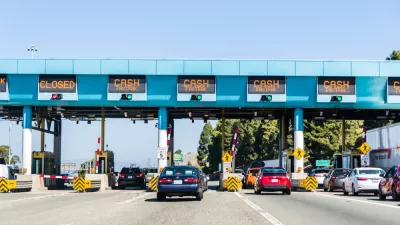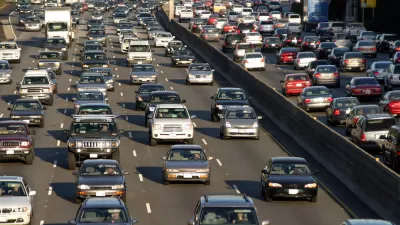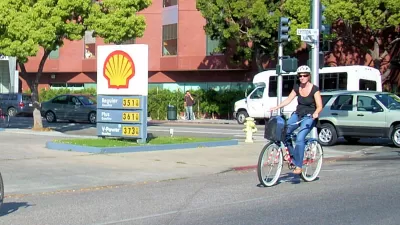Repeal proponents have already planned a sequel for Proposition 6, regardless of whether the measure passes, resulting in the loss of over $5 billion annually from new transportation user fees, including a 12-cents per gallon gas tax increase.

Shortly after voting on Proposition 6, "Voter Approval for Future Gas and Vehicle Taxes and 2017 Tax Repeal Initiative," voters will be asked to sign petitions for an initiative for the 2020 ballot "that would ensure fuel taxes, car sales taxes and truck weight fees are spent on transportation projects," reports Alexei Koseff for The Sacramento Bee on July 31.
The proposal expands on Republican arguments that the gas tax increase, passed last year by Gov. Jerry Brown and Democratic lawmakers, was unnecessary because the state already has plenty of money to pay for a backlog of road repairs and maintenance.
Unlike the taxes and fees in Senate Bill 1, the Road Repair and Accountability Act of 2017, the new initiative, which appears to be the brainchild of Carl DeMaio, who funded the current repeal initiative, brings in no new revenue. Instead, it diverts existing funds from the state's general fund to transportation, a trend seen elsewhere, particularly in states that are reluctant to hike transportation user fees like Texas.
For example, state legislation passed in 2011 requires that truck weight fees, about $1.1 billion according to Koseff, is used to pay debt service on Proposition 1B, the $19.9 billion transportation bond passed in November 2006. A much larger diversion would come from motor vehicle sales taxes.
The largest chunk of new funding for the plan comes from reallocating the sales taxes on automobiles to local transportation officials. According to a study [pdf] by the Center for Automotive Research, California sales taxes for new cars, used cars, parts and services totaled $6.5 billion in 2013.
There already is a "transportation lockbox" for fuel tax revenue, known as Article 19 in the state constitution, although it does allow revenue to be spent on transit guideways. In June, voters overwhelmingly passed Proposition 69 that provided lockbox protection for two SB 1 fees.
Koseff describes other aspects of the measure, including savings attained by outsourcing to the private sector. He also wrote a comprehensive description of Proposition 6 for those who are interested.
FULL STORY: Fix California roads without the new gas taxes? Here’s what it would take

Planetizen Federal Action Tracker
A weekly monitor of how Trump’s orders and actions are impacting planners and planning in America.

Maui's Vacation Rental Debate Turns Ugly
Verbal attacks, misinformation campaigns and fistfights plague a high-stakes debate to convert thousands of vacation rentals into long-term housing.

Restaurant Patios Were a Pandemic Win — Why Were They so Hard to Keep?
Social distancing requirements and changes in travel patterns prompted cities to pilot new uses for street and sidewalk space. Then it got complicated.

In California Battle of Housing vs. Environment, Housing Just Won
A new state law significantly limits the power of CEQA, an environmental review law that served as a powerful tool for blocking new development.

Boulder Eliminates Parking Minimums Citywide
Officials estimate the cost of building a single underground parking space at up to $100,000.

Orange County, Florida Adopts Largest US “Sprawl Repair” Code
The ‘Orange Code’ seeks to rectify decades of sprawl-inducing, car-oriented development.
Urban Design for Planners 1: Software Tools
This six-course series explores essential urban design concepts using open source software and equips planners with the tools they need to participate fully in the urban design process.
Planning for Universal Design
Learn the tools for implementing Universal Design in planning regulations.
Heyer Gruel & Associates PA
JM Goldson LLC
Custer County Colorado
City of Camden Redevelopment Agency
City of Astoria
Transportation Research & Education Center (TREC) at Portland State University
Jefferson Parish Government
Camden Redevelopment Agency
City of Claremont





























